![Medicine - Cancer Biology E-Newsletter [Vanderbilt University]](https://cdn.vanderbilt.edu/vu-URL/wp-content/uploads/sites/119/2017/11/19151037/cancer-biology-design-004.png)
|
|
August 2022
|
|

Our society is fast-paced these days with little time to relax. Dr. Robert Matusik, a scientist and artist recently retired from Vanderbilt, shares his beautiful nature photograph with us in this month’s newsletter. The attitude of go, go, go will serve us well in science; however, taking time to reflect is equally essential. Observing nature in person or through beautiful wildlife photographs reminds us to slow down and attend to the details. While there are times you need to bolt out of bed and hit the trail running before the sun rises, photography and research require patience, reflection, and keen attention to detail. Patience is the key ingredient to becoming a great scientist or artist. The faculty members in the Program in Cancer Biology hope you enjoyed nature and science this summer and that you are inspired and rested for the 2022 Fall semester here at Vanderbilt.
Faculty Spotlight:
 Albert Reynolds, PhD Albert Reynolds, PhD
Professor of Pharmacology,
Emeritus Professor of Cancer Biology.
Dr. Reynolds received his BA at Kenyon College and his PhD at the University of Virginia. He did his postdoctoral work with Tom Parsons as a postdoctoral fellow at the University of Virginia. Reynolds was instrumental in identifying several of the first bona fide steroid receptor coactivator (SRC) substrates, including focal adhesion kinase (FAK), cortactin, actin filament-associated protein (AFAP) and p120-catenin (p120). Today these substrates permeate almost every aspect of modern cell biology, as evidenced by more than 9,000 citations on these four substrates alone. Reynolds joined the Department of Cell Biology at Vanderbilt in 1995 and devoted his career to elucidating p120’s essential roles in cell-cell adhesion and cancer. Often cited as the “Father of p120,” he led the field for over two decades as it morphed into an important and still expanding branch of the classical cadherin domain. Research in the Reynolds laboratory centers on p120-catenin (p120) and its role in cadherin-mediated cell-cell adhesion. However, he soon discovered that the p120 interacts directly with E-cadherin and some 20 other members of the classical cadherin superfamily. These studies culminated in the seminal finding of p120’s best-known role as an essential regulator of classical cadherin stability. Over time, the lab transitioned into conditional p120 KO mouse models to address the obvious translational implications with respect to roles for p120 in tumorigenesis and/or metastasis. Indeed, p120 has emerged as a major player in tumorigenesis and metastasis. For example, in the Apc min mouse model of intestinal cancer, p120 functions as a potent haplo insufficient tumor suppressor, whereas p120 ablation in the MMTV-mT model of breast cancer almost entirely blocked metastasis to the lungs. In addition, attention has recently turned to p120’s nuclear binding partner Kaiso; a transcription factor believed to play a central role in tissue differentiation. Remarkably, the paths of p120 and Kaiso apparently converge on a gene-specific differentiation program, most likely active in a broad spectrum of epithelial tissues and possibly hijacked in cancer.
Dr. Reynolds was a leader of the VICC Program in Signal Transduction and Cell Proliferation from 2008-2013 and the Director of the Vanderbilt Antibody and Proteins Core Resource from 2009-2017. He was DGS for the Graduate Program in Cancer Biology from 2000-2016. Dr. Reynolds served on numerous NIH study sections and published over 130 peer-reviewed papers. He successfully trained over 24 graduate students and postdoctoral fellows who have all gone on to have highly successful careers. He will always be known as a brilliant researcher and respected teacher at Vanderbilt. Dr. Reynolds is interested in taking investment courses, traveling and reconnecting with family and friends in his retirement. Enjoy your retirement doing the “next big thing,” and please stop by to visit us.
Research Track Faculty Spotlight:

Melissa A Fischer, MS, PhD
Research Assistant Professor
Dr. Fischer received her PhD in Biochemistry from Vanderbilt University in 2011 and joined the Savona Lab in 2015. Her graduate work focused on the role of Myeloid Translocation Gene 16 (MTG16, also known as ETO2), which is disrupted in Acute Myeloid Leukemia (AML) by the translocation t(16;21). In the Savona lab, she studies hematopoiesis and tests novel drug therapies for myeloid malignancies. She has optimized high throughput methods to screen malignant myeloid cells for response to inhibitors. In addition, she spearheads the development of three-dimensional stromal models to study myelodysplastic cells ex vivo.
Graduate Student Spotlight:

Alex Silver, BA
Alex is an MSTP student who joined the Savona Laboratory in 2019; he is studying clonal hematopoiesis and how this common age-associated phenomenon contributes to human disease. Clonal hematopoiesis, or the presence of an acquired mutation in the blood without evidence of blood cancer, affects roughly 10% of the population over 70 years of age. Clonal hematopoiesis leads to an increased risk of developing a hematologic malignancy and can increase the risk for inflammatory diseases such as atherosclerosis. In his research, Alex has been using CRISPR knock-in models and Vanderbilt’s linked EHR database/DNA biobank to look at phenotypes associated with specific clonal hematopoiesis mutations. In a recent study published in Nature Medicine, he worked with team members in the Savona lab and collaborators in New York City on research showing that first responders to the World Trade Center disaster have a higher prevalence of clonal hematopoiesis than matched firefighter controls who were not exposed. Before joining the Savona lab for his graduate studies, he worked for two years as a technician at Brigham and Women’s Hospital in the lab of Dr. Benjamin Ebert, studying the causal relationship of clonal hematopoiesis to atherosclerotic cardiovascular disease in mouse models. A native of Massachusetts, Alex attended Williams College. When he’s not busy doing science, he enjoys running, reading, trying new recipes, and spending time with family, friends, and his dog, Griffin. Alex’s recent publication in Nature Medicine
Program of Cancer Biology Newly Minted PhD:
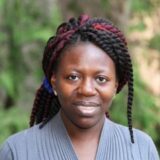 Verra Ngwa, PhD Verra Ngwa, PhD
Dr. Ngwa (Chen Lab) recently defended her dissertation, which focused on targeting vascular endothelial glutaminase in triple-negative breast cancer. Vascular endothelial cells are specialized components in the tumor microenvironment (TME) that line the inner walls of blood vessels and serve as precursors for new blood vessel formation (angiogenesis). Compared to normal blood vessels, tumor blood vessels are abnormal with chaotic angiogenic sprouting, which results in spontaneous hemorrhage and increases interstitial fluid pressure in the TME. These defects of intra-tumoral vessels lead to poor leukocyte trafficking and drug delivery. Although there is a solid published premise for tumor blood vessel normalization, mechanisms to improve tumor vessel quality are only beginning to be investigated. Because tumor ECs are fast growing, they require nutrients to generate biomass that supports their proliferative program. Indeed, inhibition of glucose metabolism has been shown to normalize tumor vasculature and improve drug delivery. Glutamine metabolism is also essential for endothelial cell proliferation and angiogenic sprouting, but this pathway has not been previously studied in the context of tumor vasculature. Using an inducible endothelial-specific glutaminase knockout (GLSECKO) mouse model, Verra and her colleagues found a significant decrease in breast cancer tumor growth and lung metastasis in GLSECKO compared to WT animals. In addition, loss of GLS decreased tumor microvascular density, increased perivascular support cell coverage, improved perfusion, and reduced hypoxia in mammary tumors. Importantly, chemotherapeutic drug delivery and therapeutic efficacy were improved in tumor-bearing GLSECKO hosts or combination with GLS inhibitor CB-839. Mechanistically, loss of GLS in tumor endothelium resulted in decreased tumor cell leptin levels, and exogenous recombinant leptin rescued tumor growth defects in GLSECKO mice. Dr. Ngwa’s research was published in Cancer Research Communications. Read here.
For her next phase, Dr. Ngwa will be starting a post-doc position in the Chen Lab and taking time to enjoy gardening, cooking, and spending time with her family.
Welcome our new trainees in the Program in Cancer:
 Déja Grant Déja Grant
is a rising 2nd-year PhD student from Charlotte, NC. She obtained her BS in Bioengineering from North Carolina A&T State University in Greensboro, NC. Déja is a student at Meharry Medical College and, through the Meharry-Vanderbilt Alliance, has chosen to do her dissertation research in Dr. Rachelle Johnson’s lab. Her project will focus on the parathyroid hormone-related protein (PTHrP) where she will study its influence on bone metastasis. Déja hopes to learn more about the truncated forms of PTHrP and their effect on metastasis in the bone. She also wants to analyze potential tumor dormancy pathways and understand how bone metastasis may affect the immune cell microenvironment. Déja enjoys dancing, yoga, painting, and spending time with friends and family in her free time. Déja loves community service and giving back to the Nashville community.
 Logan Vlach Logan Vlach
obtained his BS in Molecular Environmental Biology from CAL Berkeley in San Francisco. He was initially going to be an environmental scientist but decided to study cancer immunology after graduating. His research in the Rathmell lab at Vanderbilt will include looking at the TME and incorporating some of his background in RNA-related work into the experiments. He hopes to continue learning about tumorigenesis and treatment strategies for patients. Outside of the lab, Logan enjoys cooking, hiking, and anything outdoors with his partner, friends and family. He also enjoys video games and watching TV with his dog, Cheddy Cheese, when time allows.
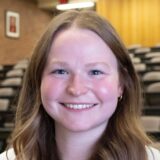 Emma Hathaway Emma Hathaway
graduated from the University of Massachusetts Amherst with a BS in Biology and worked in an immunology lab at Dana-Farber Cancer Institute during her gap years. She has joined the lab of Jeff Rathmell, where her research will focus on developing CRISPR screens in CART cells. This research will allow the team to identify metabolic regulators of CART cell antitumor efficacy, particularly in solid tumor models. Emma enjoys hiking, biking, yoga, reading, and exploring Nashville with friends outside the lab.
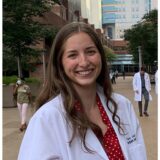 Gwen Joseph Gwen Joseph
received her BS from Purdue University in Biochemistry and has joined Rachelle Johnson’s lab as a graduate student. Her project in the lab will focus on the impact of PD-1 blockade on the skeleton. There is an increased fracture risk associated with using PD-1 blockade as an immunotherapy treatment for cancer; however, there is a knowledge gap concerning the mechanism behind this observation or prevention therapies. Gwen’s project will investigate how T cells and inflammatory cytokines regulate bone loss with PD-1 inhibition and deletion. Additionally, looking into whether inflammatory osteoclasts are increased by PD-1 blockade and whether targeting osteoclasts prevents bone loss and fracture risk. In her free time, Gwen likes to stay active in rock climbing, playing sand volleyball, walking, and strength training. She also enjoys getting coffee, having board game nights, and trying new restaurants with friends!
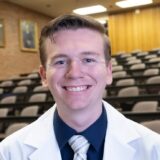 Jeremy Kane Jeremy Kane
is a graduate student in Rachelle Johnson’s lab. He graduated from Rochester Institute of Technology in 2019 and worked at Cornell and Roswell Park Cancer Institute before attending Vanderbilt. Jeremy is interested in how cancers initiate and the molecular mechanisms of how they begin this process, especially in challenging environments. He will be researching PTHrP and its role in breast cancer tumor growth and metastasis to bone in the lab. In his free time, he likes niche concerts, wine tasting, and pro football (Go Rams!).
|
|
CONFERENCES OF INTEREST:
2022 V14 Junior Faculty Retreat. Aug 16 from 9 am-5 pm at Smith and Lentz 903 Main Street, Nashville, TN. Register here.
V14 Diversity, Equity and Inclusion Symposium. “Careers in Stem: Perspectives from Latin Scientists.” Sept 23 from 12 pm-5 pm, Light Hall room 202.
The 19th International Congress of the Society For Melanoma Research. October 17-20, 2022, in Edinburgh, United Kingdom. Register here
55th Annual Meeting of the Society for Leukocyte Biology. October 26-29, 2022, in Big Island, HI. Register here
37th Annual Meeting and Pre-Conference. 2022 Society for the Immunotherapy of Cancer (SITC). November 8-12, 2022, in Boston MA Register here
2022 San Antonio Breast Cancer Symposium. AACR. Dec. 6-10, 2022 in San Antonio TX. Register here
2023 Southeast Immunology Symposium (SIS). The Vandy SIS will be held in the Student Life Center June 12-13, 2023.
CALENDAR OF EVENTS VANDERBILT:
Medical Grand Rounds Livestream
Vanderbilt Calendar
Vanderbilt’s Equity, Diversity and Inclusion
Student Center for Social Justice & Identity
V14 Seminar Series Schedule
Subscribe to VI4 Newsletter
VUMC BRET Career Development ASPIRE Program
BRET Seminars
Vanderbilt Asian American and Pacific Islander alumni group.
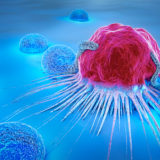
RECENT VANDERBILT FACULTY AND TRAINEES PUBLICATIONS:
Activation of STAT3 through combined SRC and EGFR signaling drives resistance to a mitotic kinesin inhibitor in glioblastoma. Rajappa S. Kenchappa, Athanassios Dovas, Michael G. Argenziano, et al. Cell Rep. 2022 Jun 21;39(12):110991.
Ligand-independent integrin beta1 signaling supports lung adenocarcinoma development. Scott M. Haake, Timothy S. Blackwell, Roy Zent et al. JCI Insight. 2022 Jun 28;e154098.
Allele-specific activation, enzyme kinetics, and inhibitor sensitivities of
EGFR exon 19 deletion mutations in lung cancer. Benjamin P Brown, Yun-Kai Zhang, Soyeon Kim, et al. Proc Natl Acad Sci U S A. 2022 Jul 26;119(30):e2206588119.
Thromboxane-Prostanoid Receptor Signaling Drives Persistent Fibroblast Activation in Pulmonary Fibrosis. Toshio Suzuki, Jonathan A. Kropski, Jingyuan Chen et al. Am J Respir Crit Care Med. 2022 Jun 21. doi: 10.1164/rccm.202106-1503OC.
Single-cell profiling of the antigen-specific response to BNT162b2 SARS-CoV-2 RNA vaccine. Kramer KJ, Wilfong EM, Voss K, et al.
Nat Commun. 2022 Jun 16;13(1):3466.
Longitudinal Education and Career Outcomes of a Cancer Research Training Program for Underrepresented Students: The Meharry-Vanderbilt-Tennessee State University Cancer Partnership. Meadows ML, Suiter SV, Sealy LJ, Marshall DR, Whalen MM, Adunyah SE. CBE Life Sci Educ. 2022 Sep;21(3):ar41.
SMAD4 suppresses colitis-associated carcinoma through inhibition of CCL20/CCR6-mediated inflammation. David N Hanna, Paula Marincola Smith, Sergey V Novitskiy. Gastroenterology. 2022 Jul 18; S0016-5085(22)00788-0.
Expanding Horizons for Treatment of Early-Stage Lung Cancer. Lovly CM.
N Engl J Med. 2022 May 26;386(21):2050-2051.
Human colon cancer-derived Clostridioides difficile strains drive colonic tumorigenesis in mice. Julia L Drewes, Jie Chen, Nicholas O Markham, et al. Cancer Discov . 2022 Jun 9; can disc.1273.2021-10-4 15:58:09.930.
A nanovaccine for enhancing cellular immunity via cytosolic co-delivery of antigen and polyIC RNA. Carson CS, Becker KW, et al., Joyce S, Wilson JT.
J Control Release. 2022 May;345:354-370
MIRIAM: A machine and deep learning single-cell segmentation and quantification pipeline for multi-dimensional tissue images. McKinley ET, Shao J, Ellis ST, Heiser CN, Roland JT, Macedonia MC, Vega PN, Shin S, Coffey RJ, Lau KS. Cytometry A. 2022 Jun;101(6):521-528.
Short-term PM2.5 exposure and early-readmission risk: a retrospective cohort study in North Carolina heart failure patients. Wyatt LH, Weaver AM, Moyer J, Schwartz JD, Di Q, Diaz-Sanchez D, Cascio WE, Ward-Caviness CK. Am Heart J. 2022 Jun;248:130-138.
Hostile Takeover: Tregs expand in IFN-γ-rich AML microenvironment
Ferrell PB, Kordasti S. Clin Cancer Res. 2022 May 19: clincanres.1030.2022.
Management of Metastatic Clear Cell Renal Cell Carcinoma: ASCO Guideline. Rathmell WK, Rumble RB, Van Veldhuizen PJ, et al. J Clin Oncol. 2022 Jun 21:JCO2200868.
Single-Cell Profiling of the Antigen-Specific Response to BNT162b2 SARS-CoV-2 RNA Vaccine. Kramer KJ, Wilfong EM, Voss K, et al. Nat Commun. 2022.
Recent Advances in the Study of Extracellular Vesicles in Colorectal Cancer. Sarah E.Glass, Robert J.Coffey. Gastroenterology. 2022 Jun 17; S0016-5085(22)00657-6.
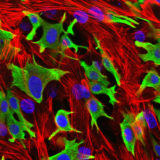
EXTERNAL/INTERNAL GRANT FUNDING OPPORTUNITIES ON THE VANDERBILT – INGRAM CANCER CENTER WEBSITE:
VIEW HERE
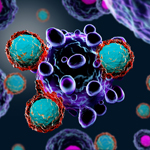
TOPICS OF INTEREST:
Vanderbilt expands paid parental leave and reproductive health resources to broaden support for the university community. Read more here
Vanderbilt Seeding Success Grant–apply here
Spring 2022 Vanderbilt Award winners of the Seeding Grant
Get help with grant submissions and resubmissions. Looking for an extra set of eyes on your upcoming grant? Edge for Scholars offers an internal review by senior faculty of any R, K, or F application, plus applications for other federal and foundation funding sources. Visit their website for more details, including deadlines
Vanderbilt University Faculty honored with Emeritus/ Emerita status
AACR Associate Memberships are FREE for graduate students, medical students and postdoctoral fellows
Microscopy education opportunity. Students and trainees: apply now for the fall semester of the Widening the Lens Microscopy Education Program. Beginner macroscopics welcome.
Postdoctoral Fellowship Opportunities: Postdoc Academy edX
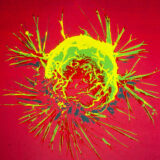
|
|
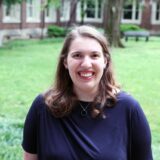 Breelyn Karno Breelyn Karno
Breelyn completed her undergraduate degree in Biology at Williams College in 2020 and has joined Dr. Jin Chen’s lab here at Vanderbilt. She is currently studying the role that glutamine metabolism plays in the process of metastasis to the bone in triple-negative breast cancer. In addition, she enjoys reading fantasy novels and running Dungeons and Dragons adventures for her friends in her free time.
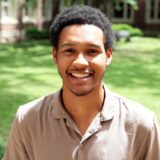 Marc Gorum II Marc Gorum II
graduated in 2021 from Howard University with a chemistry degree and minors in biology and math. As a Meharry Medical student, he is now pursuing his PhD in Biomedical Sciences, with a concentration in Biochemistry and Cancer Biology. He has joined Dr. Alissa Weaver’s lab, where he hopes to examine the uptake and inactivation of EV-associated RNAs in human colon cancer cells. His future goal is to become a college professor. In his free time, he enjoys new restaurants and trying new things, playing video games with friends, and listening to music
 Raymond J. Zhang Raymond J. Zhang
is from Chapel Hill, NC and received his undergraduate degree from Wheaton College in MA. His past work studied cancer-specific transgenic T cells, but he is interested in expanding his knowledge in the field of cancer immunology research. He will be joining the Kim lab as an MTSP student, exploring the role of VISTA/PD-1H, an immune co-signaling molecule, in oncogenesis and cancer progression. Outside of the lab, Raymond enjoys cooking, climbing, online shopping, apartment gardening and eating!
The Program in Cancer Biology Student Association organized a Welcome Picnic for our new trainees on June 30. Tacos were served, and each new graduate student received the book “The Emperor of All Maladies” written by Siddharth Mukherjee. The event was well attended by our faculty and trainees.
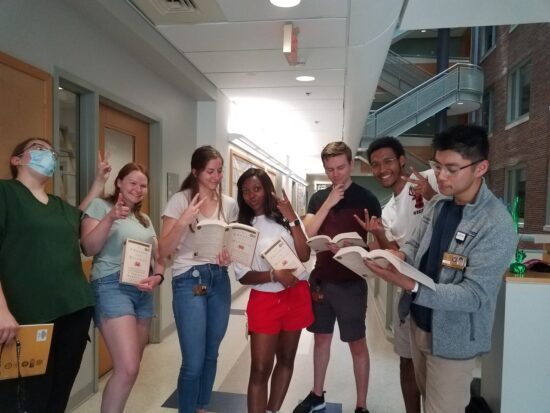
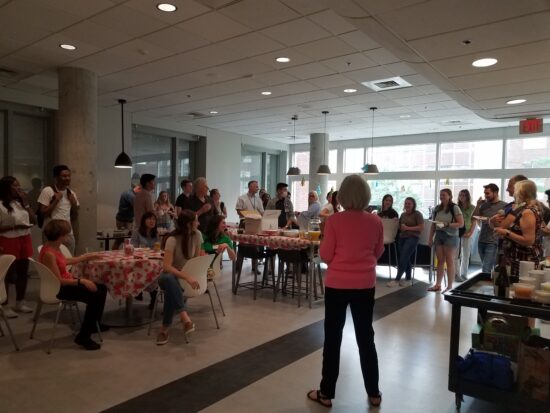
Sesquicentennial Grants available from Vanderbilt University.

A new internal award program, the Sesquicentennial Grants, will provide up to $50,000 for faculty, staff, and students. The deadline for submission is August 29. As part of Vanderbilt’s upcoming sesquicentennial celebration, our 150th anniversary, the Office of the Chancellor is launching a grant program to support activities and projects that engage with the university’s history; look ahead to its future, and explore what makes Vanderbilt distinctive and unique. The grant program welcomes proposals from groups across the Vanderbilt community, including faculty, staff, students, and alums. Proposals that focus on a particular contribution by a group or program are encouraged. The program also welcomes proposals that demonstrate collaboration across the university. The grants will be used to support a range of activities and programs, including but not limited to academic forums, research, performances, exhibitions, events, and celebrations. Award sizes will vary from $5,000 to $50,000, depending on the nature of the proposal.
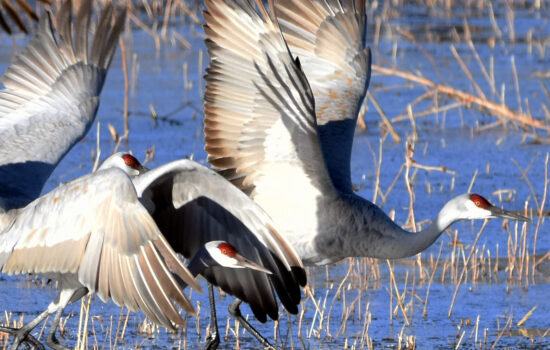
Program in Cancer Biology Faculty and Trainee News:

Haley Ramsey, PhD
Research Assistant Professor
(Savona Lab)
Dr. Haley Ramsey received her BSc from the University of Tennessee and her PhD from the Medical University of Vienna. She was credited with creating the first murine model of alloreactive mismatch T memory cells for use in bone marrow, heart, and skin transplantation studies. Before moving to Vanderbilt in 2015, she was a postdoctoral fellow at Harvard Medical School, where she studied myelodysplastic syndrome and hemostasis. She is the recipient of awards from the American Society of Hematology, Harvard Medical School, Children’s Hospital in Boston, Massachusetts General Hospital, and Roche. Her expertise in modeling malignant hematologic disorders is accompanied by her interest in determining the underlying mechanisms of novel cancer therapies.

Deborah Lannigan, PhD
Professor of Pathology, Microbiology and Immunology.
Dr. Lannigan’s recent research results will be published in the September Journal of Endocrinology. Her work examines how signaling via extracellular regulated kinase 1/2 (ERK1/2) and p90 ribosomal S6 kinase (RSK), a downstream effector, mediates numerous cellular processes. For example, ERK1/2-RSK signaling is essential for estrogen homeostasis in the the mammary gland and uterus to maintain physiological responsiveness. This review will focus on the coordination of ERK1/2-RSK2 and estrogen signaling through estrogen receptor alpha (ERα). The interrelationship and feedback mechanisms between these pathways occur at transcription, translation, and posttranslational modification levels. Identifying how ERK1/2-RSK2 and estrogen signaling cooperates in homeostasis and disease may lead to novel therapeutic approaches in estrogen-dependent disorders. Read the full article here.
STANLEY COHEN AWARDS for research bridging diverse disciplines, such as Chemistry or Physics, to solve biology’s most important fundamental questions were awarded to:
Robert Coffey Jr., MD
The John B. Wallace Professor of Medicine and Ingram Professor of Cancer Research, Professor of Cell & Developmental Biology.
 Dr. Coffey is internationally known for his work on the trafficking of extracellular proteins, or ligands, that bind the epidermal growth factor receptor (EGFR) and the role of this receptor interaction in gastrointestinal cancer. His lab has identified a new mode of EGFR ligand signaling via extracellular vesicles called exosomes and discovered an inducible negative EGFR regulator that acts as a tumor suppressor. Dr. Coffey is the founder and co-director of the Epithelial Biology Center at VUMC and a primary investigator in the Vanderbilt-Ingram Cancer Center. Dr. Coffey is internationally known for his work on the trafficking of extracellular proteins, or ligands, that bind the epidermal growth factor receptor (EGFR) and the role of this receptor interaction in gastrointestinal cancer. His lab has identified a new mode of EGFR ligand signaling via extracellular vesicles called exosomes and discovered an inducible negative EGFR regulator that acts as a tumor suppressor. Dr. Coffey is the founder and co-director of the Epithelial Biology Center at VUMC and a primary investigator in the Vanderbilt-Ingram Cancer Center.
Kimryn Rathmell, MD, PhD
Hugh Jackson Morgan Professor of Medicine and Chair of the Department of Medicine, Professor of Biochemistry, and Physician-in-Chief, Vanderbilt University Hospital.

Dr. Rathmell’ s career as a physician-scientist has spanned molecular biology research in the pathogenesis of kidney cancer; nationally funded large-scale genomic studies of cancer; clinical investigations bringing new biomarkers, imaging modalities and therapies to patient care; and graduate and medical education. As a clinician, she has ushered in new lifesaving treatments and is a leader who has advocated for funding for kidney cancer research, including as a champion for rare subtypes of kidney cancer. Read Dr. Rathmell’s recent study in J Clin Oncol June 2022 article. Management of Metastatic Clear Cell Renal Cell Carcinoma: ASCO Guideline.
Jeffrey Rathmell, PhD
Cornelius Vanderbilt Chair in Immunobiology, Professor of Pathology, Microbiology & Immunology and of Molecular Physiology & Biophysics.
Dr. Rathmell studies immunometabolism — how nutrient and metabolic pathways can influence immune responses in normal and disease settings, such as cancer. By modulating the metabolism of cancer cells and inflammatory T cells, he and his colleagues seek to improve the effectiveness of antitumor immunotherapy. Dr. Rathmell directs the Vanderbilt Center for Immunobiology and is associate director of the Vanderbilt Institute for Infection, Immunology and Inflammation and the Molecular Pathology & Immunology PhD Program.
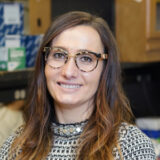
Andreana Holowatyj, PhD, MSCI,
Assistant Professor of Medicine and Cancer Biology, has been named the inaugural chair of the scientific advisory board for the Appendix Cancer Pseudomyxoma Peritonei Research Foundation. The foundation’s research grant program has historically been administered by the National Organization for Rare Disorders (NORD). However, as part of the foundation’s next chapter, spurred by significant growth in recent years, it is now positioned to launch an internally administered program that will accord it greater flexibility and precision in research funding.
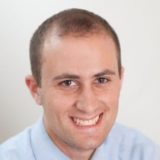 Alexander Bick, MD, PhD Alexander Bick, MD, PhD
Assistant Professor of Medicine (Genetic Medicine) is among three Vanderbilt researchers named 2022 Pew-Stewart Scholars. The Pew-Stewart Scholars for Cancer Research, supports promising early-career scientists whose research will accelerate discovery and advance progress to a cure for cancer. He will receive $300,000 over four years to support his research. Read more here
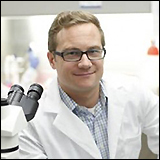
John T. Wilson, PhD
Associate Professor of chemical and biomolecular engineering was named 2022 Chancellor Faculty Fellow. “I’m proud to congratulate our new fellows, whose bold and rigorous research has set an inspiring example across their fields and throughout our community,” Provost and Vice Chancellor for Academic Affairs C. Cybele Raver said. “They are excellent ambassadors for Vanderbilt and the value of higher education in solving the world’s most complex problems.” Dr, Wilson will hold the title of Chancellor Faculty Fellow and will be supported by an unrestricted allocation of $40,000 a year for two fiscal years beginning July 1. The funds can be used to support innovative research, scholarship and creative expression that will further propel their careers. Read full announcement
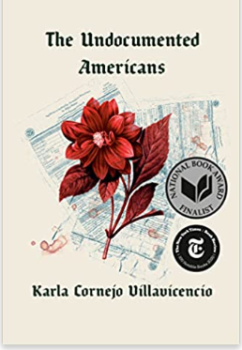
Book recommendation from Vanderbilt University, purchase here on Amazon.
One of the first undocumented immigrants to graduate from Harvard reveals the hidden lives of her fellow undocumented Americans in this deeply personal and groundbreaking portrait of a nation.

Have a suggestion for the Cancer Biology newsletter? Do you have an upcoming event you want to share with the Cancer Biology community?
E-mail: kerry.w.vazquez@vanderbilt.edu.
Newsletter header photo credit to Dr. Anna Vilgelm, “DNA Comets”. Articles and Pictures credit to VU and VUMC. Wild life photos credit to Dr. Robert Matusik. Cancer cell photo’s credit to unsplash and the NIH.
|
|
|
Vanderbilt University is committed to principles of equal opportunity and affirmative action.
Vanderbilt®, Vanderbilt University®, V Oak Leaf Design®, Star V Design® and Anchor Down® are trademarks of The Vanderbilt University. ©2025 Vanderbilt University. All rights reserved.
|
|
![Medicine - Cancer Biology E-Newsletter [Vanderbilt University]](https://cdn.vanderbilt.edu/vu-URL/wp-content/uploads/sites/119/2017/11/19151037/cancer-biology-design-004.png)